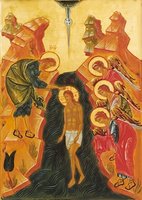The Cross of Christ Unites. . . In Liberty
For I delight in the law of God, in my inmost self, but I see in my members another law at war with the law of my mind and making me a captive to the law of sin which dwells in my members. Wretched man that I am! Who will deliver me from this body of death? Thanks be to God through Jesus Christ our Lord! ROMANS 7:22–25
The Son of man came not to be served but to serve, and to give his life as a ransom for many. MATTHEW 20:28
When you read the gospels, you sometimes sense that the disciples of Jesus were not listening to him.
He announced his Passion as they made their way to Jerusalem, and they began to squabble over who would get to sit at his right and his left in the kingdom. Whenever Jesus preached the way of the cross, they sought the opposite path. Even when he asked the disciples if they could drink out of the chalice from which he was to drink, they seemed not to catch the full import of what he was saying.
Yet who are we to critique the apostles’ inability to comprehend the Lord’s message? When we hear of the way of the cross, we filter out the harsh reality of the message. As slaves to pleasure, we flee when faced with the cross or offered the drink from his chalice. Yet God’s grace is great; even when we run, we end up right where God wants us.
















